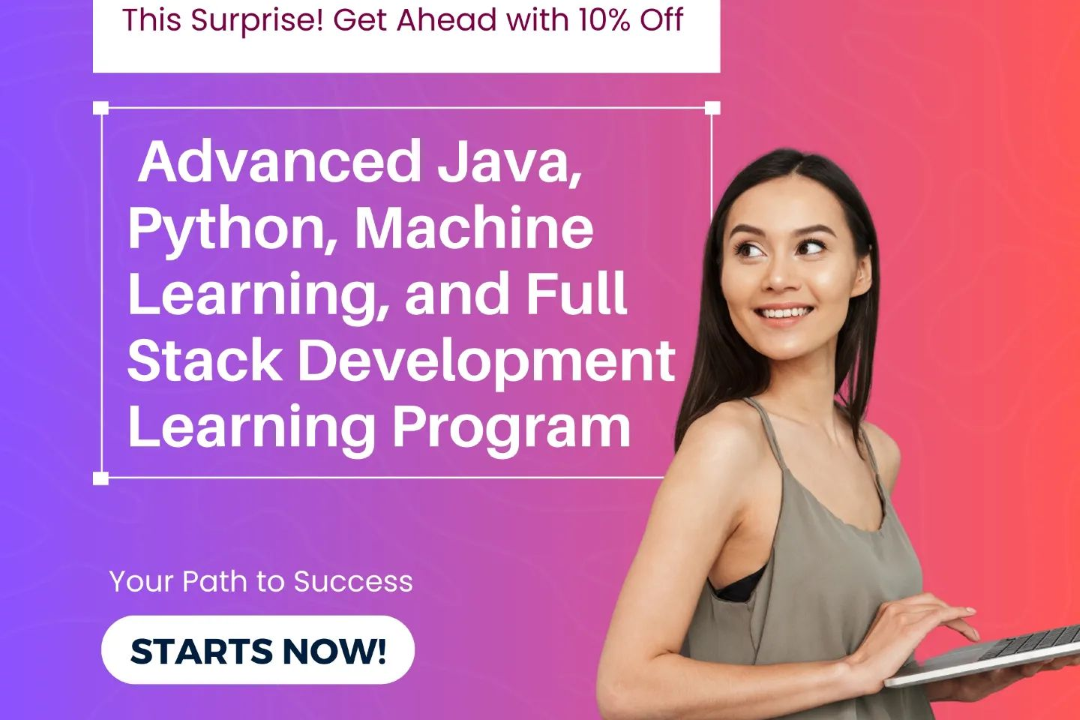Laravel Interview Questions For 5 Year Experience
Advanced Laravel Interview Questions for Senior Developers with 5+ Years of Experience
Laravel Interview Questions For 5 Year Experience
Interview questions for candidates with 5 years of Laravel experience typically focus on assessing their in-depth knowledge and practical skills in utilizing Laravel's advanced features, such as its robust ORM, eloquent relationships, queues, and event handling capabilities. By probing into their experience with building complex applications, customizing Laravel components, and optimizing performance, interviewers can gauge a candidate's ability to leverage Laravel's full potential for enterprise-level solutions. Additionally, questions may explore the candidate's understanding of Laravel's security features, testing practices, and debugging techniques, demonstrating their commitment to developing secure and reliable applications.
To Download Our Brochure: https://www.justacademy.co/download-brochure-for-free
Message us for more information: +91 9987184296
1 - Explain the Laravel MVC architecture. Answer: Laravel follows the Model View Controller (MVC) architecture where models handle data logic, views render the user interface, and controllers coordinate requests and responses.
2) Describe the Artisan command line tool and its uses. Answer: Artisan is a built in command line interface for generating code, managing migrations, and performing various other development tasks.
3) Explain the Eloquent ORM and its advantages. Answer: Eloquent is Laravel's object relational mapping (ORM) system that simplifies database interactions by allowing you to work with objects instead of raw SQL.
4) Discuss the purpose and functionality of the RouteServiceProvider class. Answer: The RouteServiceProvider is responsible for registering routes in the application. It allows for easy grouping and organization of routes based on their purpose or functionality.
5) Explain the concept of middleware and how it is used in Laravel. Answer: Middleware are classes that can intercept HTTP requests and manipulate them before they reach the controller. They are used for tasks such as authentication, error handling, and caching.
6) Describe the blade templating engine and its features. Answer: Blade is a templating engine used in Laravel that allows you to easily integrate PHP code within your views. It provides various features such as conditional statements, loops, and inheritance.
7) Explain the concept of dependency injection and how it is implemented in Laravel. Answer: Dependency injection is a design pattern where classes receive their dependencies (other objects) from outside rather than creating them themselves. Laravel uses a service container to manage dependency injection.
8) Describe the use of migrations and seeds in Laravel. Answer: Migrations are used to create and modify database tables, while seeds are used to populate those tables with initial data. Laravel provides a convenient way to manage migrations and seeds through its Artisan commands.
9) Explain the concept of facades and how they are used in Laravel. Answer: Facades provide a simple way to access Laravel components throughout the application. They act as static proxies that allow you to call methods on the underlying component.
10) Describe the purpose and functionality of the Auth scaffold in Laravel. Answer: The Auth scaffold is a tool that automates the generation of user authentication and registration functionality. It creates database tables, models, controllers, and views to handle user management.
11 - Explain the concept of event listeners and how they are used in Laravel. Answer: Event listeners are classes that respond to specific events that occur in the application. They allow you to define custom logic that should be executed when certain events are triggered.
12) Describe the purpose and functionality of the laravel.log file. Answer: The laravel.log file is used to store log messages generated by the application. It provides a central location to track application activity and identify any errors or issues.
13) Discuss the importance of testing in Laravel and describe common testing practices. Answer: Testing in Laravel ensures the reliability and stability of your application. Common testing practices include unit testing, integration testing, and functional testing.
14) Explain the concept of caching in Laravel and describe the different caching drivers it supports. Answer: Caching improves application performance by storing frequently accessed data in memory. Laravel supports various caching drivers such as Redis, Memcached, and the file system.
15) Describe the purpose and functionality of the Laravel scheduler. Answer: The Laravel scheduler allows you to schedule tasks to run at specific intervals or on specific dates. It provides a convenient way to handle automated tasks such as sending emails, generating reports, or cleaning up data.
Ways to Earn More Points
1. Complete Tasks:
- Answer questions
- * Participate in discussions
- * Complete surveys
- * Rate websites
- * Review products
- 2. Invite Friends:
- * Refer friends to the platform and earn points for their sign ups and activities.
- 3. Be Active:
- * Regularly log in and participate in the platform
- * Post quality content
- * Engage with other users by commenting and liking
- 4. Consistency and Engagement:
- * Maintain an active presence on the platform, consistently engaging in tasks and interactions.
- 5. Participate in Contests and Giveaways:
- * Enter contests and participate in giveaways hosted by the platform or its partners.
- 6. Create Valuable Content:
- * Share unique and insightful contributions that are appreciated by the platform community.
- 7. Special Offers and Promotions:
- * Take advantage of special offers and promotions that provide bonuses or extra points.
- 8. VIP Membership:
- * Upgrade to a VIP membership to access exclusive perks and accelerated point earning.
- 9. Affiliate Marketing:
- * Partner with the platform and promote its services to earn points from referred customers.
- 10. Content Creation Incentives:
- * Some platforms offer incentives for creating specific types of content, such as videos, articles, or social media posts.
- Tips for Optimizing Point Earning:
- Set Goals:* Establish a target number of points to earn each month or quarter.
- Diversify Tasks:* Participate in multiple activities to maximize point accumulation.
- Maximize Referrals:* Actively promote your referral code and encourage friends to join.
- Be Patient and Consistent:* Earning points requires time and effort. Maintain a steady pace of participation.
- Use Point Multipliers:* Look for opportunities to earn bonus points or multiply your earnings from certain tasks.
- Course Overview
- This course comprehensively prepares software engineers with 5 years of Laravel experience for technical interviews by covering essential concepts, best practices, and commonly asked questions. It focuses on architectural design, database optimization, testing techniques, debugging strategies, and advanced features such as queues, caching, and service containers.
- Course Description
- Prepare for your Laravel job interview with confidence with this comprehensive course designed for candidates with 5+ years of experience. Master advanced Laravel concepts, design patterns, performance optimization, dependency injection, and testing techniques to showcase your expertise and secure your dream role.
- Key Features
- 1 - Comprehensive Tool Coverage: Provides hands-on training with a range of industry-standard testing tools, including Selenium, JIRA, LoadRunner, and TestRail.
- 2) Practical Exercises: Features real-world exercises and case studies to apply tools in various testing scenarios.
- 3) Interactive Learning: Includes interactive sessions with industry experts for personalized feedback and guidance.
- 4) Detailed Tutorials: Offers extensive tutorials and documentation on tool functionalities and best practices.
- 5) Advanced Techniques: Covers both fundamental and advanced techniques for using testing tools effectively.
- 6) Data Visualization: Integrates tools for visualizing test metrics and results, enhancing data interpretation and decision-making.
- 7) Tool Integration: Teaches how to integrate testing tools into the software development lifecycle for streamlined workflows.
- 8) Project-Based Learning: Focuses on project-based learning to build practical skills and create a portfolio of completed tasks.
- 9) Career Support: Provides resources and support for applying learned skills to real-world job scenarios, including resume building and interview preparation.
- 10) Up-to-Date Content: Ensures that course materials reflect the latest industry standards and tool updates.
Benefits of taking our course
Functional Tools
1 - Laravel: A popular PHP framework that provides a wide range of features and tools to simplify web development. It is known for its clean syntax, expressive coding style, and extensive community support.
2) MySQL: A widely used relational database management system that stores and manages data in a structured manner. It offers high performance, reliability, and scalability for complex database applications.
3) Eloquent ORM: Laravel's object relational mapping (ORM) tool that simplifies the interaction with databases. It provides a fluent API for querying, inserting, updating, and deleting data without writing raw SQL queries.
4) Blade templating engine: A powerful and lightweight templating engine that allows developers to easily create dynamic web pages. It uses a simple and expressive syntax to define the layout and content of a web page.
5) Artisan command line interface: Laravel's built in command line interface (CLI) tool that provides a convenient way to run various tasks, generate code, and manage the application.
6) Composer: A dependency management tool that helps developers manage, install, and update PHP libraries and packages used in their applications. It ensures that all required dependencies are available and up to date.
Optimize Your Content
- Create high quality, engaging content: Write informative, well researched articles, videos, and other engaging formats that provide value to your audience.
- Use relevant keywords:* Include keywords throughout your content to help it rank higher in search results.
- Structure your content clearly:* Use headings, subheadings, and bullet points to make your content easy to read and navigate.
- Add visual elements:* Include images, videos, and infographics to break up text and enhance user engagement.
- Build Backlinks
- Guest post on other websites:* Reach out to reputable websites in your industry and request to write a guest post that includes a link back to your website.
- Participate in online forums and discussions:* Engage in discussions related to your topic and include a link to your website when relevant.
- Create valuable content that others will want to link to:* Develop resources, tools, or research that others may find useful and worthy of citing.
- Promote Your Content
- Use social media:* Share your content on social media platforms to reach a wider audience.
- Email marketing:* Build an email list and send regular newsletters featuring your latest content.
- Collaborate with influencers:* Reach out to influencers in your industry and ask them to promote your content to their followers.
- Analyze and Track Results
- Use Google Analytics:* Track website traffic, user behavior, and keyword performance to identify areas for improvement.
- Monitor your backlinks:* Use tools like Ahrefs or Moz to track the number and quality of backlinks pointing to your website.
- Review user feedback:* Pay attention to comments, reviews, and social media mentions to understand how your content is being received.
- Other Tips
- Be patient:* Building authority and earning points takes time and consistent effort.
- Stay updated on Google's algorithm changes:* Keep up with the latest updates and best practices to stay ahead of the curve.
- Focus on quality over quantity:* Create less, but higher quality content that will resonate with your audience and stand out from the competition.
- Be consistent:* Publish new content regularly and promote it consistently to maintain visibility and engagement.
- Network with other content creators:* Attend industry events, join online communities, and connect with other creators to share knowledge and collaborate.
Browse our course links : https://www.justacademy.co/all-courses
To Join our FREE DEMO Session: Click Here
This information is sourced from JustAcademy
Contact Info:
Roshan Chaturvedi
Message us on Whatsapp:
Email id: info@justacademy.co












